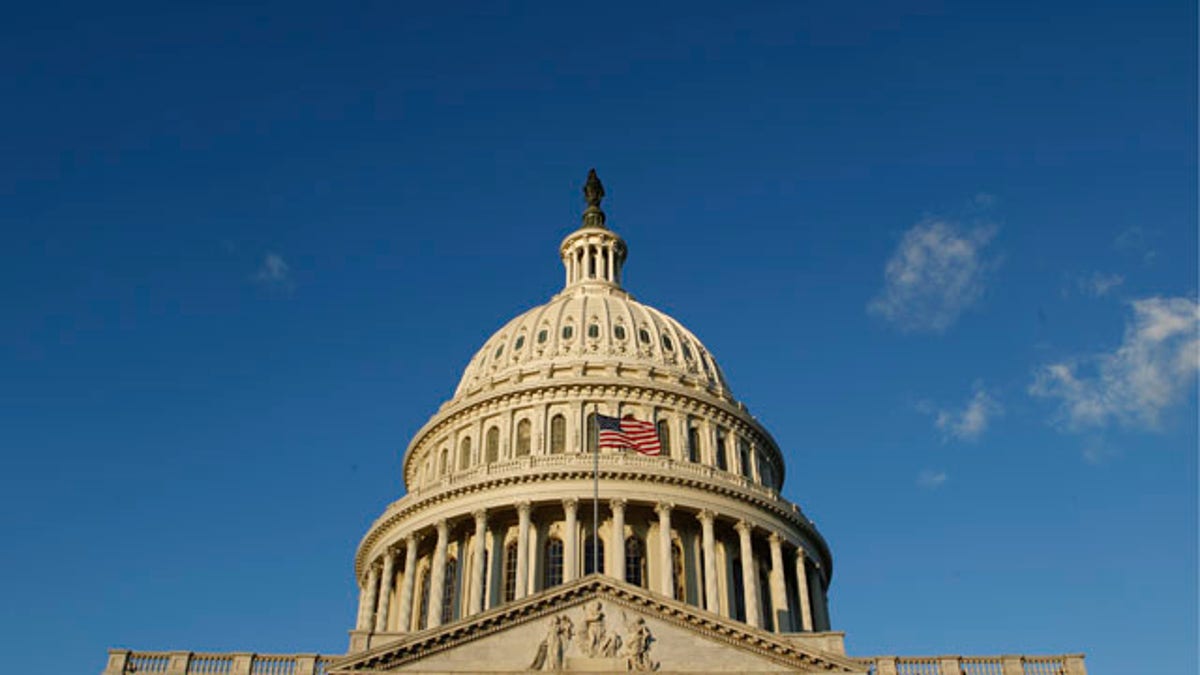
The Capitol building is seen at sunrise on Capitol Hill in Washington. (Reuters)
WASHINGTON – Lawmakers on Thursday unveiled a bipartisan bill to overhaul how sexual harassment claims are handled on Capitol Hill.
The bill proposes major reforms to the 1995 Congressional Accountability Act, and comes after months of discussion among both Republican and Democrat lawmakers about how to create more transparency as the (hash)MeToo movement continues to roil the political sphere.
Under the legislation, lawmakers who settle harassment cases would be required to pay back the Treasury for the amount of their settlement within 90 days, including members who leave office; if they don't, their wages could be garnished. The bill also prohibits lawmakers from using their budgets to pay for settlements.
Beginning last fall, the Committee on House Administration held hearings to discuss ways to overhaul the Congressional Accountability Act, which came under fire for being particularly opaque and secretive.
Committee members, in a joint written statement, said, "we believe the proposed comprehensive reforms will pave the way for a safer and more productive congressional workplace."
Currently, staff members who want to file a harassment complaint with the Office of Compliance or a federal lawsuit are first required to participate in counseling and mediation. The new bill eliminates those as prerequisites.
The bill also offers employees with opportunities to work remotely while their complaints are being investigated, and establishes a dedicated advocate to provide legal consultation and assistance to staffers filing harassment complaints. In addition, it mandates that the Office of Compliance, which would be rebranded as the Office of Congressional Workplace Rights, publish a list of awards and settlements that includes the employing office, amount, violation claim and whether the member has repaid the Treasury.
House Democratic Leader Nancy Pelosi called the bill "a vital first step to protect all in our legislative community from harassment and discrimination, and to foster a climate of respect and dignity in the Congress, with zero tolerance for discrimination or abuse of any kind." Pelosi added that lawmakers would also work with the Equal Employment Opportunity Commission to improve private sector workplace protections.
Late last year, a half-dozen lawmakers accused of sexual misconduct were either forced to resign or abandon plans to run for re-election. One of those lawmakers, Rep. Blake Farenthold, last month pledged to reimburse the Treasury for $84,000 paid to settle a sexual harassment claim brought by his former communications director. But as of last week a spokeswoman for Farenthold said the congressman was waiting to see what changes and mandates would be included in the new bill before repaying the funds.
Recent statistics show the Treasury has paid nearly $300,000 in taxpayer funds since 2003 to settle sexual harassment and sex discrimination cases against Congressional offices.
The legislation also extends protections to interns and fellows, in addition to paid congressional staff.







